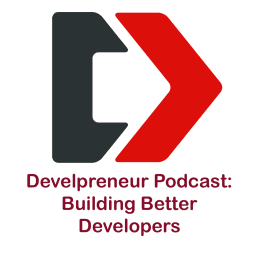In this podcast transcript, Rob and Michael delve into the pivotal topic of defining requirements in software development. They emphasize the significance of clear and detailed requirements, underscoring the potential pitfalls of vague or incomplete requirements. Throughout the conversation, they provide insights, anecdotes, and practical strategies for navigating the complexities of requirement gathering and management. Let’s dive into the key points discussed by Rob and Michael.
Defining Requirements
The Importance of Clear Communication
Rob and Michael stress the importance of clear communication in understanding and defining project requirements. They highlight the dangers of assumptions and ambiguity, advocating for a thorough exploration of the client’s needs and expectations. Drawing from their experience, they emphasize the need for developers to engage in detailed discussions with clients to ensure alignment on project goals and outcomes.
Understanding the End Goal
A key topic we discuss is the necessity of understanding a project’s end goal before delving into its requirements. Rob and Michael illustrate the importance of clarifying objectives and envisioning the desired outcome using the tree swing example. This requires us to ask probing questions and seek clarity on client expectations. By doing so, developers can ensure that the final product meets the intended purpose.
Agile Approach to Requirement Management
The conversation touches upon the agile approach to requirement management, emphasizing the iterative and adaptable nature of the process. Rob and Michael advocate for regular review and refinement of project requirements, especially in dynamic environments where priorities and circumstances may change over time. They underscore the value of maintaining a flexible backlog and continuously reassessing the relevance and feasibility of pending tasks.
Test-Driven Development and Quality Assurance
The discussion expands to encompass the role of test-driven development (TDD) and quality assurance (QA) in requirement validation. Rob and Michael highlight the importance of thinking critically about user interactions and anticipated outcomes when refining project requirements. They advocate for a proactive approach to testing and validation, leveraging QA principles to uncover potential issues and ensure the robustness of the final product.
In conclusion, Rob and Michael emphasize the ongoing nature of requirement management and the importance of continuous improvement. They encourage developers to adopt a proactive mindset, actively engaging with clients and stakeholders to refine project requirements iteratively. By prioritizing clear communication, understanding the end goal, and embracing agile practices, developers can navigate the challenges of requirement gathering and deliver successful outcomes for their clients.
Final Thoughts on Defining Requirements
As Rob and Michael wrap up their discussion, they invite listeners to engage with their podcast and provide feedback or topic suggestions at [email protected]. They reiterate their commitment to delivering valuable insights and practical advice for developers, underscoring the collaborative nature of their community. With a focus on continuous learning and improvement, they invite listeners to join them on their journey of building better developers.
By incorporating these key points and insights, developers can enhance their approach to requirement management and contribute to the success of their projects. Whether adopting agile methodologies, leveraging TDD principles, or prioritizing clear communication, a proactive and iterative approach to requirement definition is essential for delivering high-quality software solutions.


[…] The Importance of Properly Defining Requirements […]